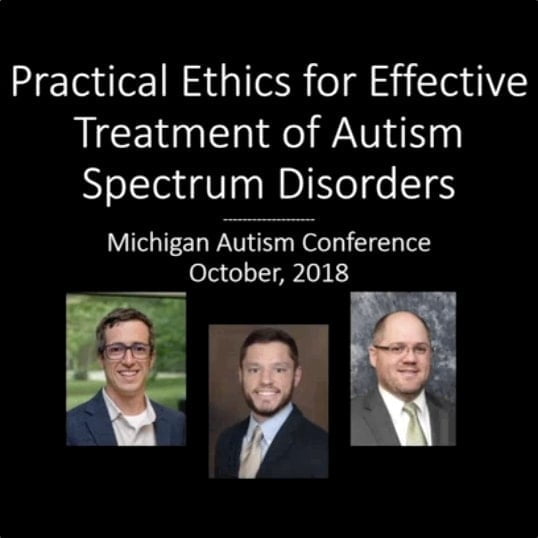Abstract
Most of a client’s hours are spent away from the main training environment. Most of our clients go home to their parents after day therapy. What becomes critical is that the methods used in ABA therapy are transferred to the home environment. There are many challenges however. The first challenge is that the BCBA must provide a behavioral repertoire to the parents. It took most of us years to establish the behavior repertoire we now have to effectively work with our clients. Aside from teaching a general behavior repertoire, it is important to know what specific targets and procedures need to be put in place. The second challenge is understanding and working around the barriers that are in place for the parents to follow thought with the BCBA’s recommendations. Consider all of the competing contingencies in place in the home. The parents may work all day, have other children, and have multiple household tasks that need to be completed. Add to that, they may not understand why it is important to do some of the things they are asked of them when it seems that there are easier ways (e.g., just give the child a hug and he will stop his tantrum). Finally, there may be situations arise where the technician feels uncomfortable in the home or she may witness a behavior from a parents that could meet criteria for call CPS. This workshop will provide the attendee the tools needed to have the most successful parent training experience possible.
About the Speakers
Carl Sundberg, Ph. D., BCBA-D, is the chief clinician and founder of the Behavior Analysis Center for Autism. He received his doctorate degree in ABA from Western Michigan University under the direction of Dr. Jack Michael. While a graduate student, he taught behavior analysis at WMU for seven years. Dr. Sundberg has publications in The Analysis of Verbal Behavior and A Collection of Reprints on Verbal Behavior. Dr. Sundberg has over 30 years of experience using behavioral interventions to teach individuals with autism and other developmental disabilities. He oversees the training of all the staff at BACA and consistently spends time with the clients. Eighty percent of his time is spent contributing to the training of staff and addressing specific client programs.






















